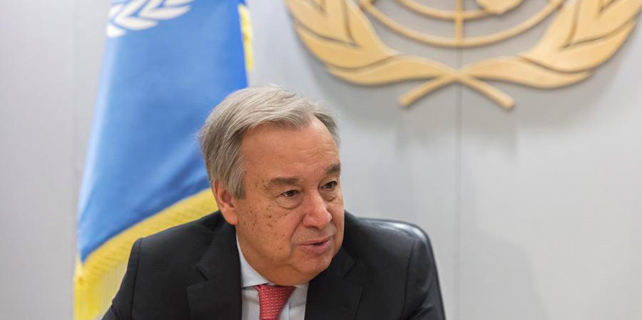Belt, Road looks good from Malaysia too
Malaysia's ambassador to the United Nations is pretty certain about the benefits the Belt and Road Initiative will bring to the countries involved in its development, including Malaysia, one of the earliest participants to sign on.
"Of course the initiative will contribute to the economic growth of the countries involved in the development of the BRI," said Muhammad Shahrul Ikram Bin Yaakob on Thursday in his office in New York.
Yaakob mentioned large-scale joint projects linked to the BRI, such as the Qinzhou Industrial Park in China, the Kuantan Industrial Park in Malaysia and the Malaka Gateway project, all of which have achieved significant progress.
He said big infrastructure projects will benefit people by increasing employment, transferring technologies and spurring the countries' economic activity by improving the efficiency of connectivity.
With regional economy speeding up driven by BRI-related projects, Yaakob said once the six economic corridors are fully implemented, not only regional economies but also global economy will greatly benefit.
The six economic corridors in the framework of the BRI include the New Eurasian Continental Bridge, the China-Mongolia-Russia corridor and the China-Central Asia-West Asia corridor. They form a trade and transport network across Eurasia.
"This is a really massive initiative, here we are talking [about] linking Asia, Europe, Africa," he said.
"When you talk about the global economy, it means the total sum of the contribution of each individual country. If all countries are doing well in their domestic economy, the regional economy is doing well, it will contribute to the global economy," he said.
Malaysian Prime Minister Najib Razak will attend the Belt and Road Forum of International Cooperation on May 14 and May 15 in Beijing.
"Malaysia and China have been having excellent bilateral relations, and that's been a great comprehensive strategic partnership," said Yaakob.
Malaysia has been China's largest trading partner in the ASEAN region since 2008, and is its third largest Asian trading partner after Japan and South Korea. Bilateral trade between the two countries, which grew at 4.4 percent in 2016, is expected to continue expanding.
President Xi first proposed the BRI in 2013 during a visit to central and southeast Asia.
On his visit to Malaysia, President Xi called for efforts to deepen mutually beneficial cooperation between China and Malaysia, Yaakob said, since "China-Malaysia economic and trade cooperation will benefit not only the two countries but also the whole region".
The two sides set a target of bringing bilateral trade volume to $160 billion in 2017.
Yaakob added that in the future, there are lots of areas that Malaysia and China can continue working together on in order to achieve the 17 UN Sustainable Development Goals, such as infrastructure development and economic development.
"Economic development on both sides has a great significance for the other," he said.
According to a statement from the Malaysia mission, During Razak's visit to China, He will witness the signing of a memorandum of understanding between Malaysia Digital Economy Corporation Sdn Bhd, Hangzhou municipal government and Alibaba.
xiaohong@chinadailyusa.com









